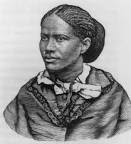1. Comment on the symbolism of vessels - rafts, ferrys, skiffs inside abandoned boats, people smuggled or smuggling on these vessels - in The Adventures of Huckleberry Finn. Compare with other literary examples, either from this course or simply that you know of.
2. Text analysis practice - try your hand at the following excerpt from chapter XII
"Every night we passed towns, some of them away up on black hillsides, nothing but just a shiny bed of lights; not a house could you see. The fifth night we passed St. Louis, and it was like the whole world lit up. In St. Petersburg they used to say there was twenty or thirty thousand people in St. Louis, but I never believed it till I see that wonderful spread of lights at two o’clock that still night. There warn’t a sound there; everybody was asleep.
Every night now I used to slip ashore towards ten o’clock at some little village, and buy ten or fifteen cents’ worth of meal or bacon or other stuff to eat; and sometimes I lifted a chicken that warn’t roosting comfortable, and took him along. Pap always said, take a chicken when you get a chance, because if you don’t want him yourself you can easy find somebody that does, and a good deed ain’t ever forgot. I never see pap when he didn’t want the chicken himself, but that is what he used to say, anyway.
Mornings before daylight I slipped into cornfields and borrowed a watermelon, or a mushmelon, or a punkin, or some new corn, or things of that kind. Pap always said it warn’t no harm to borrow things if you was meaning to pay them back some time; but the widow said it warn’t anything but a soft name for stealing, and no decent body would do it. Jim said he reckoned the widow was partly right and pap was partly right; so the best way would be for us to pick out two or three things from the list and say we wouldn’t borrow them any more – then he reckoned it wouldn’t be no harm to borrow the others."








